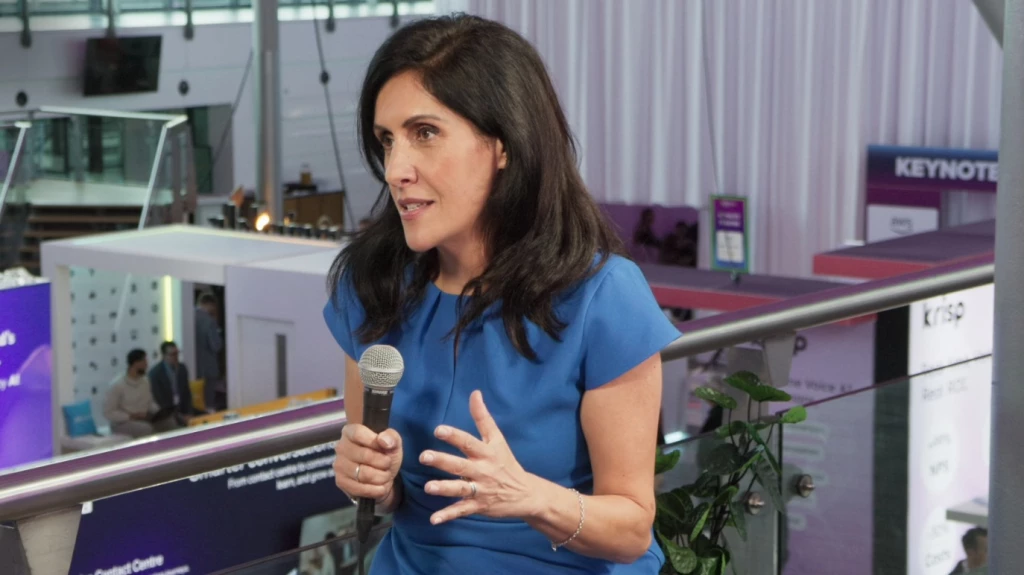9 Essential Skills for Achieving Customer Service Excellence
Add bookmark
Frontline employees are usually the first point of contact customers have with your company. Essentially, they are representatives for your brand. If they have the skills, the tools and the confidence to solve problems creatively and independently, they will be more likely to go the extra mile for customers. This article explores nine key skills your organisation – and your employees – need to achieve customer service excellence.
1. Communication skills
Communication skills should be top of the list of attributes for customer service professionals, whether this is speaking face-to-face, over the phone, or writing through digital channels like email or chat. Staff must be able to convey information clearly while maintaining a friendly and professional tone, and if writing, good grammar and a professional writing style are crucial.
Customer experience thought leader Dan Gingiss believes that it is better to overcommunicate, as this reduces effort on the part of the customers because they don’t have to seek out answers themselves.
Listening, and not just hearing, is another vital communication skill. Paying careful attention to a customer’s issue helps to quickly identify its root, so it can be easily resolved.
2. Problem-solving
Customer service excellence means resolving problems quickly and effectively, and to do this, issues need to be understood and addressed with minimal friction. Customer service professionals must be able to think on their feet, quickly assess the situation, identify solutions and take the best course of action.
It’s worth remembering that in order to do this, employees need training to have the necessary knowledge of company policies, and the confidence to make decisions. BT Group handle this with an in-house knowledge hub called ‘Albert’ (named after Albert Einstein). “This platform plays a pivotal role in steering the direction of conversations by prompting questions like: ‘Have you attempted this with the customer?", or "Have you explored that avenue with the customer?’” explains Head of Complaints Operations Rebecca Harvison.
“This approach naturally guides the advisors through a process to arrive at a solution,” she adds.
3. Emotional intelligence
Broadly speaking, emotional intelligence is defined as the ability to perceive, interpret, and use emotions to communicate with others. It’s an important skill required for any customer-facing role, as it enables service professionals to manage their emotions and respond constructively to concerns, especially when under pressure.
Self-awareness and empathy fall under emotional intelligence, two qualities that can transform a frustrating experience into a positive one. An empathic customer service professional can put themselves in the customer’s shoes and respond with compassion and understanding.
They say patience is a virtue, and this certainly rings true in situations where customers may be confused, frustrated, or even angry. Remaining calm, composed, and professional when dealing with difficult interactions is a critical skill that reflects well on your company.
Depending on the nature of your business - for example if your frontline staff are exposed to particularly stressful situations on a regular basis - you may want to consider supporting them with stress management training and/or mental health resources.
4. Multitasking
Juggling multiple tasks is a significant part of a customer service role, whether it is taking calls while searching for information on a computer or handling queries while keeping an eye on the shop floor. This is especially important for periods where there is high demand.
While the emergence of AI-chatbots and automation has simplified this in some instances, the fact that customers now expect communications over multiple channels means that customer service staff must be able to handle customer interactions over the phone, via email, chat and social media, sometimes simultaneously.
Generative AI Chatbot Investment Trends [Infographic]
Gain data-driven insights into the evolving AI landscape, helping you understand how organisations are navigating chatbot investments and what’s next for AI in customer experience.
Download Now5. Time management
Customer-facing roles involve deadlines, as it’s necessary to prioritise customer needs and ensure timely responses.
Efficiently handling customer enquiries while maintaining quality is a balancing act. Consider for example, a role where there are multiple support tickets outstanding at the same time, of varying degrees of complexity. The agent or service professional will need to assess the urgency and difficulty of each issue, respond as promptly as possible to avoid queues, and know when to escalate the most complex problems.
6. Collaborative working
According to our State of Customer Management 2025 report, only 11 percent of companies have contact centres that are fully integrated with other departments; and a further 48 percent say they have occasional collaboration with other areas of the business.
These companies risk missing out on the valuable insights frontline interactions can provide the wider business, which can be used to make changes that ultimately help improve service. Behind-the-scenes collaboration, whether it's working with technical support, sales or logistics, can help ensure the customer receives the best possible service.
7. Technological proficiency
In the digital age, customer service excellence depends heavily on using the right tools. These could include contact centre agents leveraging live chat and AI-based tools, using a Customer Relationship Management (CRM) system to log interactions, helpdesk software for managing tickets, and internal tools such as in-house knowledge hubs.
An advanced degree in IT isn’t needed, but some knowledge of using tech tools can help resolve issues faster, leading to higher customer satisfaction. The fast pace at which technology evolves means that businesses must provide ongoing training for staff to keep up-to-date on the latest platforms.
8. Positive attitude
Customer service expert Shep Hyken notes that in his latest research into the state of customer experience, three out of the top five reasons customers go back to the companies they love doing business with are down to interactions with employees, namely: employees who are helpful and knowledgeable, employees who show empathy, and a friendly experience.
A positive attitude can set the tone for an entire customer interaction. Even when the situation is challenging, this can reassure customers and transform an experience from a frustrating one into one that fosters customer loyalty.
It also has the added bonus of creating a positive environment for colleagues, boosting team morale – which also contribute to customer service excellence.
9. Product knowledge
Last but not least, a customer service team can only deliver excellence if they truly understand the products or services they support, and can provide accurate, up-to-date and helpful information. Staff should be able to answer questions confidently, so to ensure this they must be trained on product and service features, but also common issues and troubleshooting steps, and company policies and procedures.
Building a culture of service excellence
As well as ensuring your team has the skills needed to deliver customer service excellence, this needs to be integrated into the operational strategy of the business. The leadership team needs to model this behaviour and prioritise service excellence in decision-making, internal communications and performance metrics.
Once this has been established at the leadership level, everyone in the company should understand how their role impacts customer experience, and you can begin to implement programmes that equip your employees with the skills they need to deliver this.
Remember that customer service staff are effectively the face of your brand. By hiring people with the right skill set, and continuously supporting them through training and other incentives, you will be reinforcing a culture where customer service excellence is deeply embedded in the daily operations and values of your organisation.
































